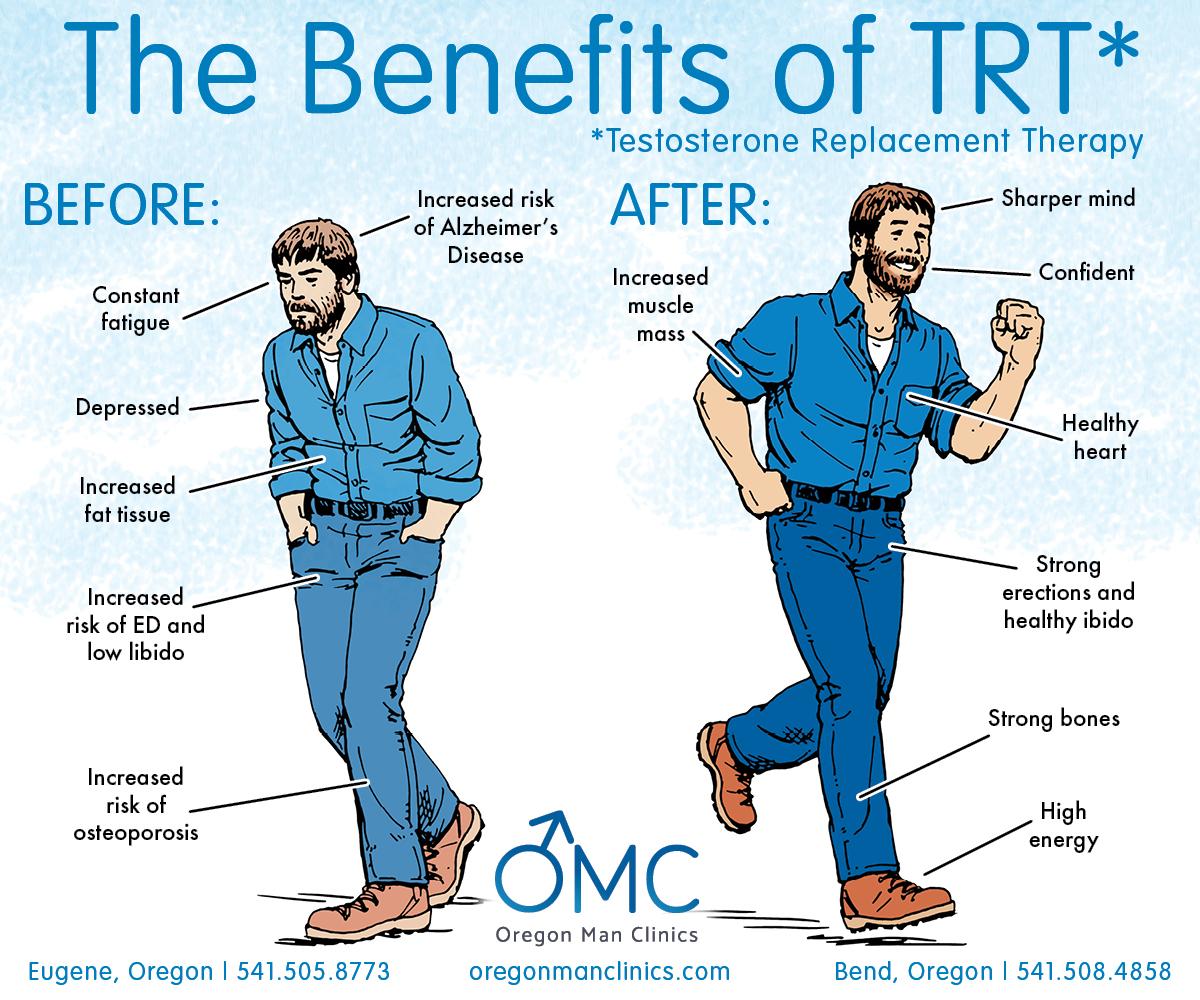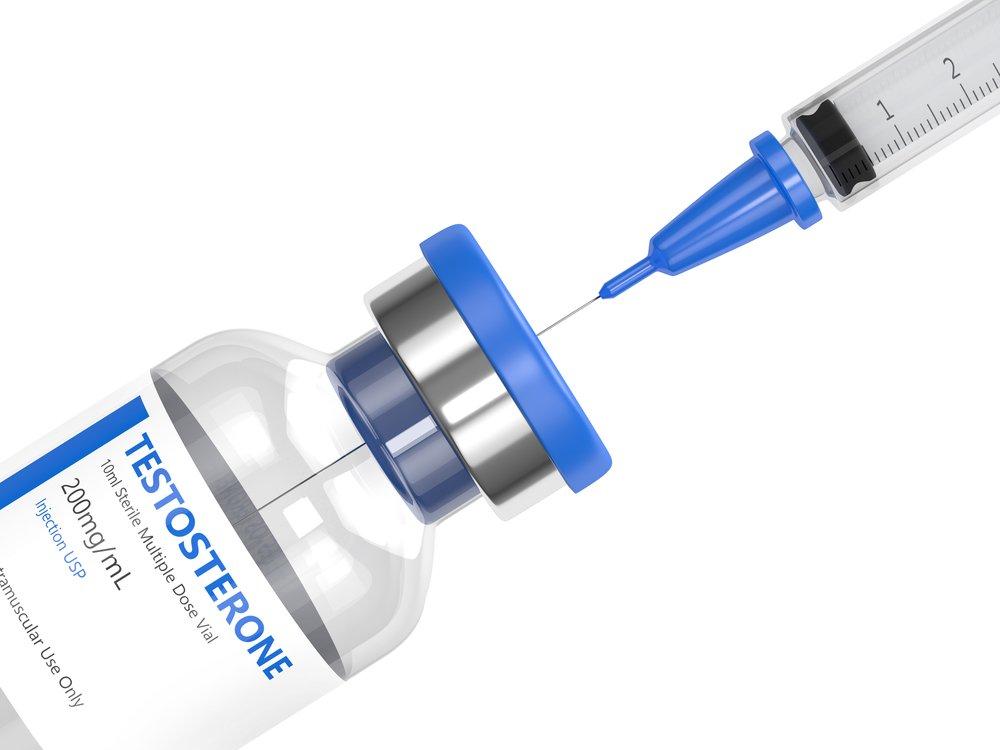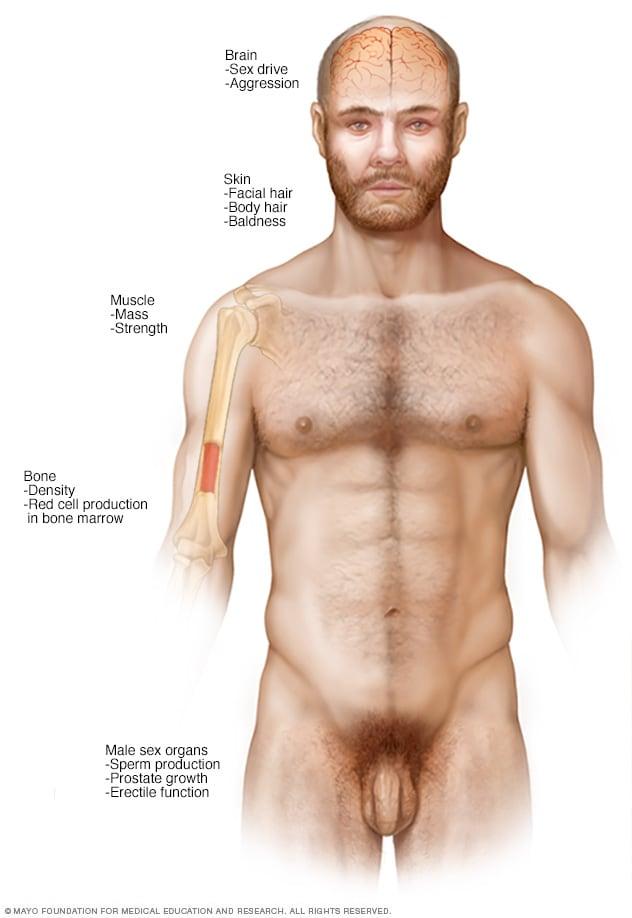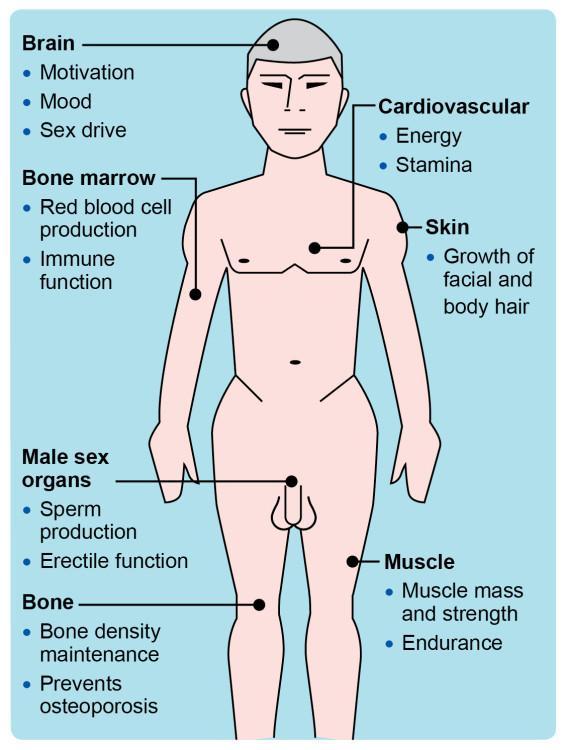In the intricate tapestry of human health, few threads are as vital yet complex as the relationship between hormones and well-being. Among these key players, testosterone stands out not only for its critical role in physical vitality and libido but also for its burgeoning connection to cardiovascular health. As medical advancements continue to illuminate the nuances of hormonal therapy, the conversation surrounding testosterone therapy has expanded significantly—encompassing not only its benefits and risks but also its potential impact on heart health. This article delves into the evolving landscape of testosterone therapy, examining its implications for cardiovascular function, the latest research findings, and what they might mean for individuals navigating this multifaceted aspect of their health. Join us as we explore the intersections of hormone balance and heart vitality, seeking to unravel the mysteries and misconceptions that surround this powerful therapy.
Understanding Testosterone Therapy and Its Role in Cardiovascular Health
Testosterone therapy has gained significant attention over recent years, particularly in the context of its potential effects on cardiovascular health. While traditionally associated with muscle mass and libido, testosterone plays a crucial role in several metabolic processes, including fat distribution, insulin sensitivity, and even inflammation regulation. This makes it imperative to understand how testosterone levels correlate with heart health. Research suggests that low testosterone, a condition known as hypogonadism, may increase the risk of coronary artery disease and heart failure. Thus, addressing low testosterone could not only enhance quality of life but also potentially act as a protective factor for heart health.
However, the relationship between testosterone therapy and cardiovascular outcomes remains complex and sometimes controversial. While some studies indicate that testosterone replacement can lead to improvements in cardiovascular markers, such as cholesterol levels and arterial stiffness, others have raised concerns about potential risks. Key considerations include:
- Dosage and Administration: The method and dose of testosterone administration can influence risk factors.
- Duration of Therapy: Long-term data is still lacking to determine the sustained impact on heart health.
- Individual Variability: Genetic and health factors may cause varying responses among patients.
Emerging studies aim to clarify how testosterone therapy impacts different populations, particularly those with pre-existing cardiovascular conditions. Below is a simplified overview of the potential benefits and risks associated with testosterone therapy:
| Benefits | Risks |
|---|---|
| Improved muscle strength | Increased risk of blood clots |
| Enhanced mood and well-being | Potential exacerbation of sleep apnea |
| Better metabolic health | Hormonal imbalance |

Exploring the Connection Between Testosterone Levels and Heart Function
Research has increasingly highlighted the intricate relationship between testosterone levels and cardiovascular health. Testosterone, a crucial hormone in both men and women, plays a key role in various bodily functions, including maintaining heart function. Studies suggest that low testosterone levels may be associated with increased cardiovascular risk factors, such as hypertension, obesity, and metabolic syndrome. In contrast, optimal testosterone levels could contribute to enhanced cardiac performance and overall well-being. Understanding these hormonal dynamics is vital, especially as the aging population faces a natural decline in hormone production.
Moreover, the impact of testosterone therapy on heart health remains a topic of ongoing investigation. While some studies indicate potential benefits, others raise concerns about the risks of therapy-related complications. It’s essential to consider factors such as age, overall health, and the presence of pre-existing conditions. Notably, research has identified several key areas where testosterone may influence heart function:
- Blood Pressure Regulation: Testosterone may help regulate vascular tone and blood pressure.
- Cholesterol Levels: Adequate testosterone levels might positively influence lipid profiles.
- Heart Muscle Strength: Testosterone contributes to muscle mass, including cardiac muscle.
| Testosterone Levels | Potential Heart Health Impact |
|---|---|
| Low | Increased risk of heart disease |
| Optimal | Improved cardiac function |
| High (uncontrolled) | Possible increased cardiovascular risk |

The Benefits and Risks of Testosterone Therapy in Men
The relationship between testosterone therapy and heart health is multifaceted and has garnered significant attention in recent years. Testosterone therapy is often prescribed to men with low testosterone levels, potentially leading to several benefits, including improved energy levels, enhanced muscle mass, and increased libido. Some studies suggest that adequate testosterone levels might contribute to cardiovascular health by improving factors such as fat distribution, insulin sensitivity, and reducing the risk of metabolic syndrome. Additionally, it may positively impact mood and mitigate symptoms of depression, leading to a more active lifestyle that is beneficial for heart health.
However, the risks associated with testosterone therapy must be thoroughly considered. There is ongoing debate about whether increasing testosterone levels could exacerbate underlying cardiovascular issues. Potential risks include elevated blood pressure, increased red blood cell production, and even the possibility of heart attack or stroke in susceptible individuals. Furthermore, the therapy might lead to other complications such as sleep apnea and prostate health issues. Patients should always engage in informed discussions with their healthcare providers to weigh the pros and cons, ensuring they make decisions that best support their overall health.

Guidelines for Safe Testosterone Usage in Heart Disease Patients
For patients with heart disease considering testosterone therapy, it is imperative to follow certain guidelines to ensure safety and efficacy. Before starting any treatment, individuals should undergo a thorough evaluation that includes assessing overall cardiovascular risk factors, lifestyle habits, and existing heart conditions. In collaboration with healthcare providers, patients should focus on the following key considerations:
- Regular Monitoring: Schedule consistent follow-ups to monitor testosterone levels, hematocrit, and blood pressure.
- Low Dosage Initiation: Start with the lowest effective dosage to minimize potential cardiovascular risks.
- Heart-Healthy Lifestyle: Prioritize a balanced diet, regular exercise, and adequate sleep to support heart health.
Additionally, patients should be aware of potential signs of complications during therapy. Immediate medical attention should be sought if symptoms such as chest pain, shortness of breath, or sudden swelling in the limbs occur. Understanding these symptoms can be crucial in preventing serious health issues. Regular communication with healthcare providers will also ensure appropriate adjustments in therapy based on individual response and health status. It may also be beneficial to establish a support network with peers who are navigating similar experiences:
| Symptom | Action |
|---|---|
| Chest Pain | Seek immediate medical evaluation |
| Shortness of Breath | Contact healthcare provider |
| Sudden Swelling | Report to a doctor or emergency services |
Monitoring Heart Health During Testosterone Treatment
When undergoing testosterone treatment, it is essential to closely monitor various aspects of heart health to ensure the therapy is beneficial rather than detrimental. Regular check-ups can help identify any potential issues early on. Key indicators of heart health during testosterone therapy include:
- Blood Pressure: Regularly check your blood pressure as testosterone can influence vascular health.
- Lipid Profile: Monitor cholesterol levels to assess cardiovascular risk.
- Heart Rate: Keep track of resting heart rate and any irregularities.
- Symptoms of Cardiac Distress: Be vigilant for symptoms such as chest pain, shortness of breath, or unusual fatigue.
In addition, certain lifestyle changes may support heart health throughout the treatment process. A balanced diet rich in omega-3 fatty acids, low in saturated fats, and high in fruits and vegetables can play a significant role. Incorporating regular physical activity into your routine will not only enhance cardiovascular health but also improve overall well-being. Consider the following practical strategies:
- Regular Exercise: Aim for at least 150 minutes of moderate aerobic activity weekly.
- Healthy Diet: Focus on whole foods and limit processed sugars and salts.
- Stress Management: Engage in mindfulness practices such as yoga or meditation.
Lifestyle Adjustments to Complement Testosterone Therapy
Incorporating effective lifestyle changes can significantly enhance the benefits of testosterone therapy, especially when it comes to heart health. Consider adopting a balanced diet rich in healthy fats, lean proteins, and plenty of fruits and vegetables while minimizing processed foods and sugar intake. This approach not only supports hormonal balance but also plays a crucial role in maintaining optimal cardiovascular health. Regular physical activity, such as cardiovascular exercises, strength training, and flexibility workouts, can help improve blood circulation, lower blood pressure, and enhance overall energy levels. Maintaining a weight within a healthy range is also essential, as excess body fat can adversely affect testosterone levels and heart function.
Moreover, prioritizing sleep hygiene and stress management is key to maximizing the effects of testosterone therapy. Aim for 7-9 hours of quality sleep each night, as this is vital for hormone regulation and recovery. To combat stress, incorporate techniques such as mindfulness, meditation, or yoga, which can help improve emotional well-being and lower cortisol levels that may negatively impact hormonal balance. Staying connected with friends and loved ones can provide emotional support, essential for mental health during the therapy process. Below is a simple table summarizing these lifestyle adjustments:
| Lifestyle Adjustments | Benefits |
|---|---|
| Balanced Diet | Supports hormonal balance and heart health |
| Regular Exercise | Improves circulation and lowers blood pressure |
| Quality Sleep | Regulates hormones and enhances recovery |
| Stress Management | Improves emotional well-being and reduces cortisol |
| Social Connections | Provides emotional support and enhances mental health |
Navigating Myths and Facts About Testosterone and Heart Health
When discussing testosterone and heart health, it’s important to challenge common misconceptions. Many believe that testosterone therapy can significantly increase the risk of heart disease; however, recent studies show a more nuanced picture. For some men, particularly those with low testosterone levels, therapy may actually improve heart health indicators, such as lowering blood pressure and reducing body fat. It’s essential to consider individual health profiles, as testosterone can have varied effects depending on existing conditions.
On the flip side, there are legitimate concerns regarding the long-term use of testosterone therapy. Key factors include the potential for increased red blood cell production and its impact on blood viscosity, which could elevate the risk of cardiovascular events. To better understand these factors, consider the following:
| Factor | Potential Impact |
|---|---|
| Red Blood Cell Count | Can lead to increased blood viscosity |
| Cholesterol Levels | May influence heart disease risk |
| Blood Pressure | Potentially lowers in some men |
Ultimately, discussing testosterone therapy alongside heart health should be approached with nuance. It’s crucial that individuals consult healthcare professionals to tailor treatment plans to their unique needs. Staying informed about both the benefits and risks can empower patients to make better decisions regarding their health and well-being.
Q&A
Q&A: Testosterone Therapy and Heart Health
Q1: What is testosterone therapy, and why is it used?
A1: Testosterone therapy involves the administration of testosterone to treat conditions caused by low testosterone levels, commonly seen in men as they age or due to certain medical conditions. This therapy aims to restore hormone levels to a normal range, potentially improving energy, mood, muscle mass, and sexual function.
Q2: How does testosterone therapy impact heart health?
A2: The relationship between testosterone therapy and heart health is complex. Some studies suggest that restoring testosterone levels can be beneficial for heart health by improving insulin sensitivity and reducing fat mass, which are protective factors against cardiovascular disease. However, other research indicates that it may also carry risks, such as increasing red blood cell count, which can lead to thicker blood and higher blood pressure. It’s a nuanced interaction that requires careful consideration.
Q3: Are there specific populations that should be cautious with testosterone therapy?
A3: Yes, certain individuals should approach testosterone therapy cautiously. Men with a history of heart disease, prostate cancer, or those experiencing symptoms like snoring or sleep apnea may face increased risks. Consulting with a healthcare provider to assess individual health status and potential risks is crucial before starting therapy.
Q4: What should patients discuss with their doctors before starting testosterone therapy?
A4: Patients should engage in an open dialogue with their doctors about their overall health, symptoms of low testosterone, and any existing medical conditions. It’s also important to discuss potential side effects, the need for regular monitoring, and alternative treatments. Understanding the pros and cons of therapy in relation to one’s heart health is essential in making an informed decision.
Q5: Can lifestyle changes support heart health in patients undergoing testosterone therapy?
A5: Absolutely! Whether on testosterone therapy or not, lifestyle changes play a crucial role in heart health. A balanced diet rich in fruits, vegetables, whole grains, and healthy fats, alongside regular physical activity, can enhance the benefits of therapy. Additionally, managing stress and avoiding smoking or excessive alcohol can further support cardiovascular wellness.
Q6: How can one monitor their heart health while on testosterone therapy?
A6: Regular check-ups with a healthcare provider are vital. Monitoring should include blood pressure checks, lipid profiles, and assessments of red blood cell counts. Patients should also note any new symptoms or changes in their health and report these to their doctor promptly to adjust therapy as necessary.
Q7: What is the current consensus on testosterone therapy and its effects on heart health?
A7: The current consensus continues to evolve. While some research indicates potential cardiac benefits of testosterone therapy, others highlight significant risks. Ongoing studies aim to clarify these relationships, so individuals should rely on updated findings and expert guidelines when considering therapy. Having personalized medical advice tailored to one’s health profile remains the best approach.
Q8: Where can patients find more information on testosterone therapy and heart health?
A8: Trusted sources include medical associations, endocrinology and cardiology guidelines, and peer-reviewed research articles. Additionally, discussing concerns with a qualified healthcare provider will provide personalized insights and recommendations, ensuring that patients make informed decisions about their health.
Closing Remarks
navigating the intersection of testosterone therapy and heart health presents a complex tapestry woven from numerous threads of research, clinical observations, and individual experiences. As our understanding continues to evolve, it’s essential for both patients and practitioners to engage in open dialogues, weighing the potential benefits against the risks.
Whether you’re considering testosterone therapy or merely seeking to understand its implications for heart health, remember that informed decisions are built on a foundation of knowledge and personalized care. As science progresses, we may uncover greater clarity in this intricate relationship, empowering individuals on their journeys toward optimal health. After all, the heart is at the center of it all—physically and metaphorically. So, as we strive for balance and well-being, let’s continue to seek harmony between our bodies and the therapies we choose.










